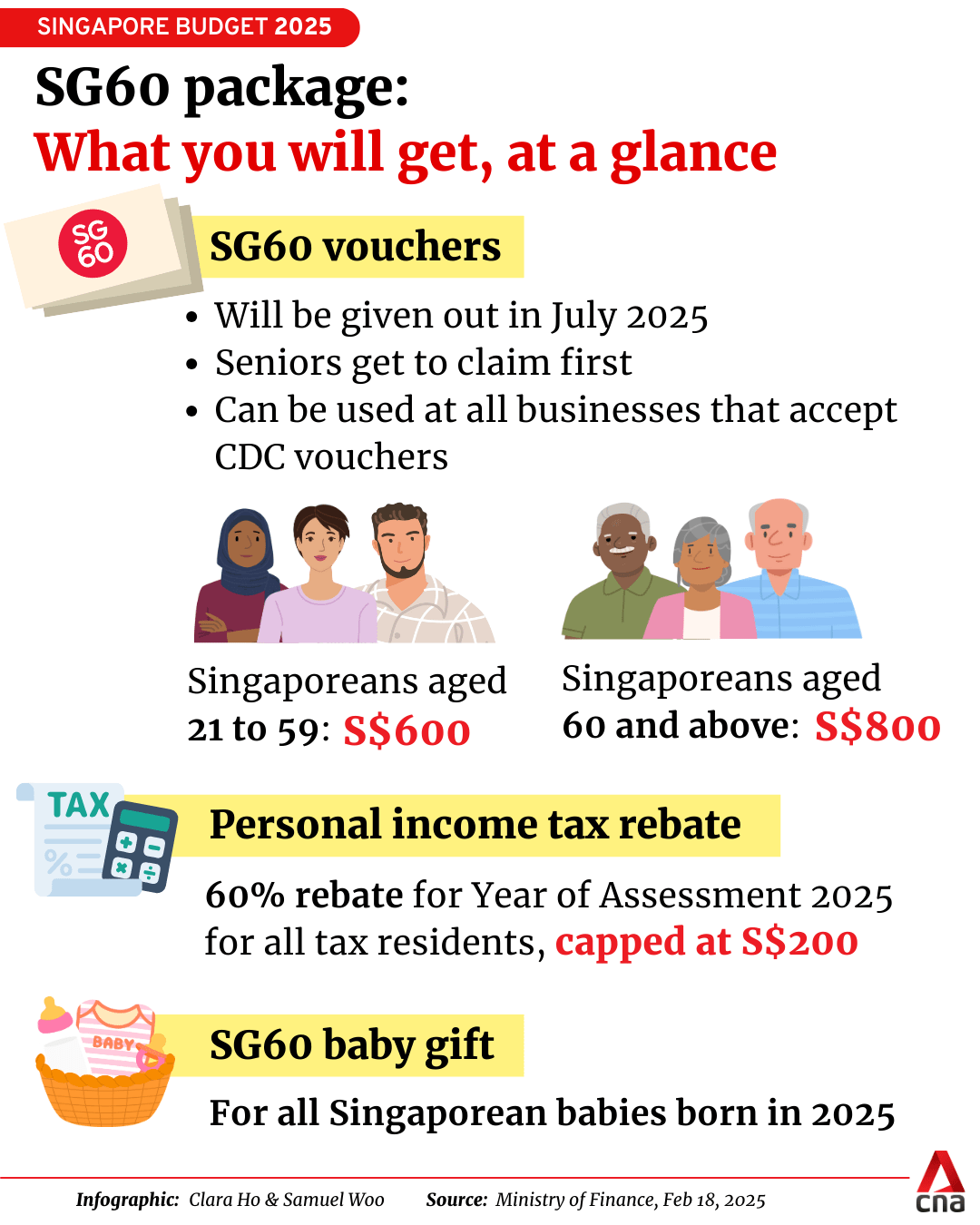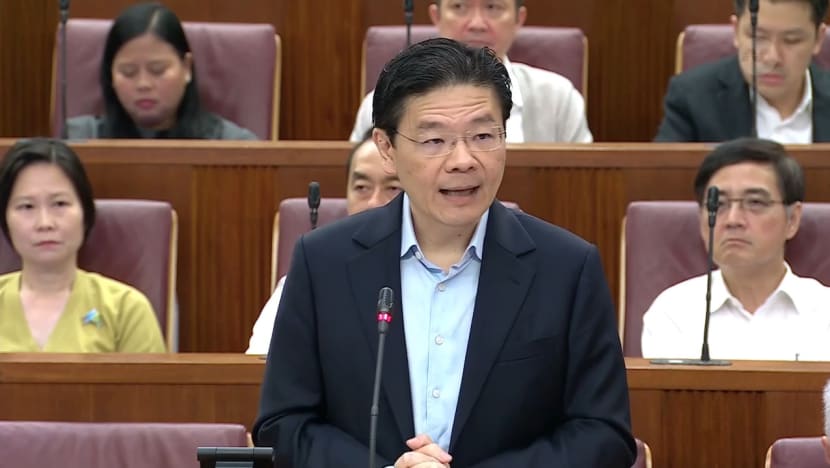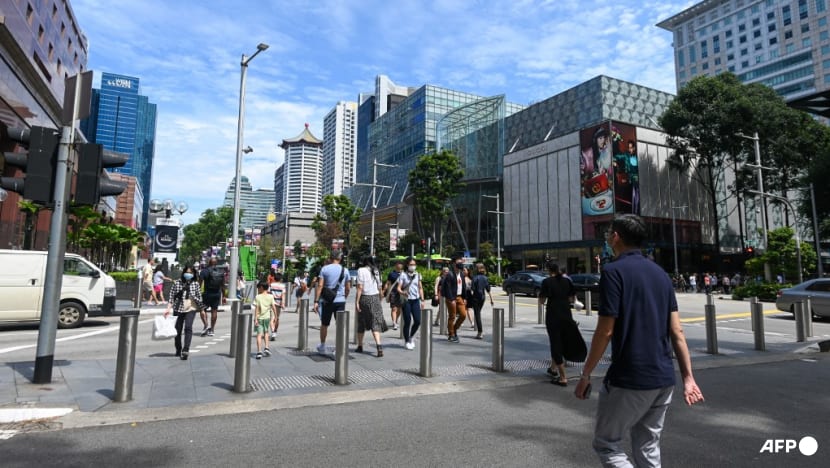Vouchers not a long-term solution, government spending much more on structural programmes: PM Wong
The more sustainable way to tackle the cost of living is to ensure that Singaporeans enjoy higher real incomes, supported by a strong economy and productivity gains, says Prime Minister Lawrence Wong after a three-day debate on the Budget.


This audio is generated by an AI tool.
SINGAPORE: Vouchers to help Singaporeans with the rising cost of living are not long-term solutions and only make up a small part of the overall Budget, Prime Minister Lawrence Wong said in parliament on Friday (Feb 28).
The cost of living measures and the support provided in the SG60 package account for only 5 per cent of Budget 2025, Mr Wong noted in his round-up speech after a three-day debate on the Budget.
“A much larger part of our spending is in structural programmes, especially to equip and empower Singaporeans through education, skills training, skills upgrading, job training and the significant moves we are making on SkillsFuture,” said Mr Wong, who is also the finance minister.
“All this will ensure Singaporeans do not just receive help, but are able to stand on their own feet and seize better opportunities for themselves and thrive in a rapidly changing world.”
Mr Wong was responding to comments from opposition Members of Parliament (MPs) on whether more focus should be on longer-term support instead of short-term handouts.
“The Workers' Party and the Progress Singapore Party appear to be unhappy and displeased that the government is providing vouchers to help Singaporeans with the cost of living,” said Mr Wong.
“They suggest that the government is relying solely on vouchers to help with the cost of living, but we've never said that,” said Mr Wong.
“These are temporary help measures, they are not long-term solutions.”
Mr Wong announced in his Budget speech earlier this month that as part of an SG60 package, all Singapore citizens aged 21 and above will receive cash vouchers of up to S$800 (US$600). These vouchers are expected to cost the government S$2.02 billion in this financial year.
Every Singaporean household will also get S$800 in CDC vouchers to offset rising costs, and this will cost the government S$1.06 billion this financial year.
The Budget was passed unanimously in parliament on Friday.

HIGHER INCOMES THE WAY FORWARD
The “more durable” and more sustainable way to tackle the cost of living is to ensure that Singaporeans enjoy higher real incomes, supported by a strong economy and productivity gains, said Mr Wong.
“That remains the key thrust of our approach, and objectively speaking, we have done relatively well.”
Mr Wong said Singaporean households across different income levels have experienced sustained real income growth over the past decade, and what Singapore has achieved has outperformed many other advanced economies.

Wage increases have to be matched by productivity gains, he noted.
Responding to Associate Professor Jamus Lim (WP-Sengkang), who highlighted that wage increases in recent years have lagged productivity growth and their scope for wages to rise further, Mr Wong said that data should be seen over a longer time frame.
“Over the past decade, real wage growth has been commensurate with productivity growth, and we will continue to push for this, to push for higher productivity as well as higher wages,” he said.
This is what the progressive wage model is for, said Mr Wong, as it ensures continued skills upgrading for workers as they move up the wage ladder.
“We will also keep an eye on costs and provide short-term help to companies where needed, but without blunting the incentive for them to restructure,” he said.
This is the reason for corporate income tax rebates in this year’s budget, as well as the increase in co-funding levels for the progressive wage credit scheme to help companies copay the wage increases for lower-wage workers, he added.
At the same time, the government is focused not just on lower-wage workers, added Mr Wong.
Responding to a supplementary question from Assoc Prof Lim, he said the government is also paying attention to the "broad middle" to ensure that all Singaporeans enjoy continued real wage increases.
And the government is "redoubling efforts" and investing more in every worker through various schemes and programmes, he added.
Pointing out that the current global environment is “very uncertain”, Mr Wong said that it has become more about “zero-sum competition” rather than “win-win cooperation”, and this will disadvantage small and open economies like Singapore.
“We have to be prepared for tougher competition and do what we can to stay in the game,” he added.
And this is why the government announced a S$3 billion top-up to the National Productivity Fund, to provide “extra firepower” to stay competitive and attract investments, said Mr Wong.
The fund was established in 2010 to support initiatives to improve productivity and train workers.
“We are taking steps to strengthen our infrastructure, enhance our enterprise ecosystem, as well as our innovation and technology engines. And these moves will translate eventually and ultimately to better jobs and better opportunities for all Singaporeans,” he added.
The authorities will also make “proactive moves” to ensure Singapore remains a reliable and trusted partner in global trade and commerce, said Mr Wong.
“In today’s fragmented world, we must work even harder to stay open as a hub where businesses from all over the world can operate with assurance and confidence," he added.
SOCIAL SPENDING EXPECTED TO GROW
Even with a strong and growing economy, day-to-day realities for Singaporeans may be different, said Mr Wong.
“Life in a compact city like Singapore with no hinterland can be competitive and it can be stressful, something which members on both sides of the house were quick to bring up in their speeches over the last two days,” he said.
He noted that there have been calls for the government to make “bolder moves” on social policies.
He said that around the world, there are many examples of social support arrangements that started with the best of intentions but only ended up with more problems.
For example, some jurisdictions offer universal health care but now face rising costs and an overburdened healthcare system.
“To be clear, this is not about government spending,” said Mr Wong.
“We are prepared to spend more where necessary, but it's equally, if not more important to get the policies right and to ensure the overall system is fiscally sound and sustainable.”
He said that “key pillars of our social system and our social compact” are being progressively strengthened.
These include Workfare for lower-wage workers, Silver Support for the more vulnerable seniors, and SkillsFuture to support all workers.
He said that the government continues to take in suggestions offered by various MPs on how to uplift vulnerable groups such as those with disabilities, seniors, caregivers, freelance and agency workers, working mothers and those with mental health issues.
“We keep an open mind, and we study all your suggestions carefully. And beyond ideas shared in this house, we continue to engage widely and hear views from all Singaporeans,” said Mr Wong.
Mr Wong said that more is spent on social development than on the economy and security.
“Actually, social spending is already greater than what we spend on both the economy and security combined, so we are not just saying we will do, we have done so in concrete terms, and we expect social spending to continue to grow in the coming years.”
He added that a strong social support system should not be reliant on the government alone.
“We will do more, but our actions must also be complemented by individual and community responsibility,” he said.
While charities and social service agencies are “doing excellent work on the ground”, individual attitudes and mindsets have to follow suit.
“It's about our shared responsibility, how we support one another, care for those in need, and lift each other up,” said Mr Wong.
GUARDING AGAINST XENOPHOBIA
Given the pace of industry transformation, the prime minister said anxiety and concerns among Singaporeans about jobs are real, but the underlying reasons for them must be understood, and the blame should not be put on foreigners.
“We can see this happening in so many other countries where foreigners are blamed and the public discourse ends up spiralling into very negative, very toxic and xenophobic directions,” said Mr Wong.
“That's not what we stand for in Singapore, and we must never allow that to happen here.”

He said that the approach towards foreign workers is clear here: “We welcome them to work here, but we do this in a controlled manner and ensure that they complement Singaporeans, and we have continued to fine-tune over time our system of controls.”
For example, a Complementarity Assessment Framework (COMPASS) framework for employment passes was introduced to assess Employment Pass applications, as have new measures like the Workplace Fairness Act to protect Singaporeans against workplace discrimination.
“This approach has contributed to positive outcomes, including low overall unemployment rates, good employment outcomes and rising real incomes for Singaporeans,” said Mr Wong.
But the government will not rest on its laurels, he said.
“The government will do more to better support Singaporeans, young and old, to better equip everyone for the changes in our economy.”
















